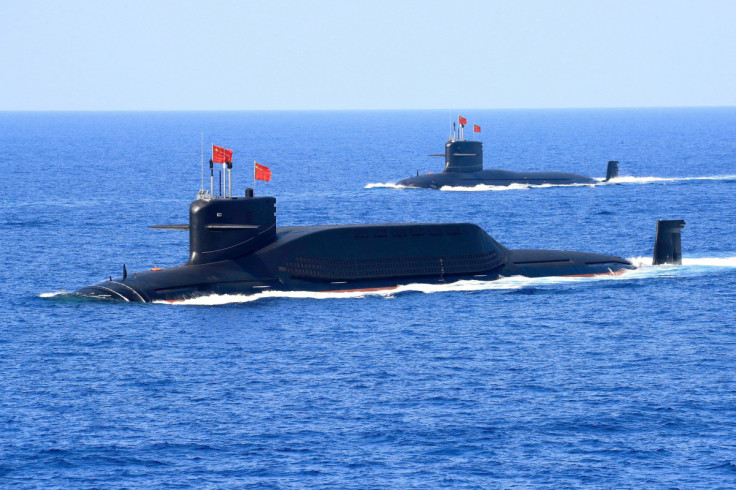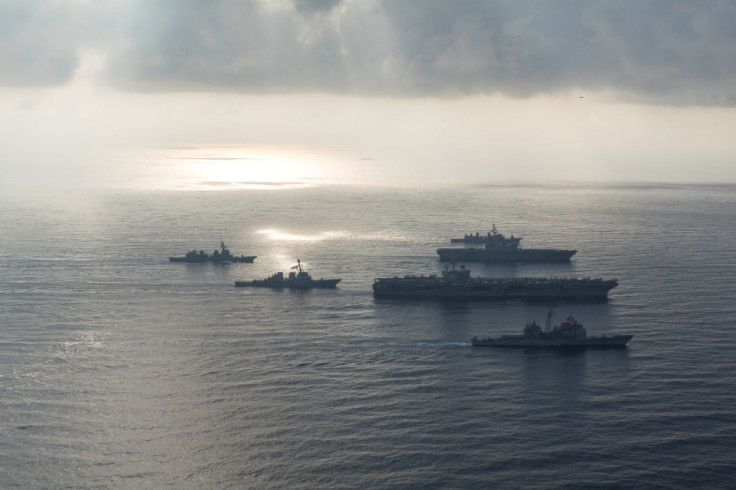China Keeps One Nuclear-Armed Submarine Patrolling 24/7; Could Hit US From South China Sea

KEY POINTS
- China is keeping a nuclear-armed submarine constantly patrolling the South China Sea
- The Pentagon said Chinese submarines are equipped with JL-3 ballistic missiles
- An expert said China is deploying its subs to serve as a "bastion" in the South China Sea
The Pentagon said China is letting at least one of its six nuclear-armed submarines constantly patrol the highly-disputed South China Sea, posing a challenge to the U.S. and its allies in the region.
In its 174-page report published last November, the Pentagon said China's Jin-class submarines are each equipped with a new, longer-range ballistic missile called JL-3, Reuters reported.
China's JL-3 ballistic missile has an estimated range of more than 6,214 miles and carries multiple warheads. According to the Pentagon, it can reach the continental U.S. from Chinese coastal waters or the South China Sea.
Gen. Anthony Cotton, the commander of the U.S. Strategic Command, confirmed the Pentagon's assessment in a congressional hearing in March.
The new ballistic missile was not expected to be deployed until China launched its next-generation Type-096 submarines in the coming years.
Collin Koh, a security fellow at the S. Rajaratnam School of International Studies in Singapore, suggested that China is deploying nuclear-capable submarines in the South China Sea to serve as a "bastion."
"If I was the planner, I would want to keep my strategic deterrence assets as close to me as possible, and the South China Sea is perfect for that," Koh was quoted as saying by Reuters.
However, more Chinese submarines deployed in the disputed waters mean a higher chance of an accidental conflict with the U.S., Hans Kristensen, the director of the nuclear information project at the Federation of American Scientists, warned.
Kristensen said tensions could flare in the region if the U.S. tries to "poke into that bastion and see what they can do."
Timothy Wright, a defense analyst at the London-based International Institute for Strategic Studies, said China's deployment of its nuclear-armed submarines could stretch the U.S.' global defenses.
Wright noted that Russia, one of the U.S.' main adversaries, also has nuclear capabilities.
"That will be of concern to the United States because it will stretch U.S. defenses, hold more targets at risk, and they will need addressing with additional conventional and nuclear capabilities," Wright said.
Wright said he believes that the U.S. would have to deploy more of its assets in the Indo-Pacific region in the next 10 to 15 years to counter China's stealthier Type-096 submarines.
According to its Pacific Fleet, the U.S. has around two dozen nuclear-powered submarines across the Pacific, including in California, Washington, Hawaii, Japan and Guam.
Sensing the growing Chinese aggression in the region, the U.S. forged partnerships with Australia and the U.K. in 2021 to establish a new security pact called AUKUS.
AUKUS initially aimed to build a new class of nuclear-powered submarines for Australia, but its objectives have further expanded to the production of hypersonic missiles and greater military cooperation between the three countries.

© Copyright IBTimes 2024. All rights reserved.






















